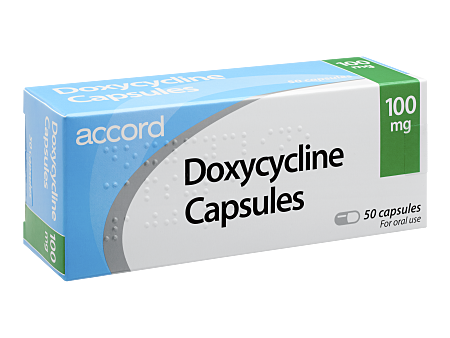
Chlamydia Treatment
Deal with chlamydia now and get prescription antibiotics like doxycycline that are over 95% effective.
-

Clear up chlamydia discreetly from home. No trips to the clinic or doctors appointments.
-

Choose discretion. Everything is delivered in unmarked packaging to protect your privacy.
-

The most effective antibiotic treatments available and rapid home testing to get you results in 72 hours.
Chlamydia is a common bacterial sexually transmitted infection (STI). It affects both men and women and is passed on from person to person during vaginal, oral, or anal sex.
In the UK, around 1 in 10 sexually active people under 25 are thought to be infected with Chlamydia. In 2023, there were 194,970 chlamydia diagnoses in the UK, up from 194,244 the year before.
We provide doxycycline to treat chlamydia, the most effective type of antibiotic for the condition. This first in-line antibiotic works to treat up to 95% of chlamydia cases within 7 days.
The typical dose is 100mg twice a day for 7 days. Doxycycline is suitable for both men and women, but you will be offered a different treatment option if you are pregnant, breastfeeding or allergic to any of the ingredients in doxycycline.
To get started, complete a short online consultation for our doctors to review. If you need treatment, they'll check that it's safe and suitable for you before prescribing it. If you need testing, we'll ship it to you right away.

Medically reviewed by
Dr. IkejiLast reviewed: 17 Jul 2024
Available Treatments And Test Kits

Please check your spelling or try another treatment name.
Delivery Options
How it Works



About Chlamydia
Symptoms of chlamydia
Most people who are infected with chlamydia do not get any symptoms. If you think you might have been exposed to chlamydia, don’t wait for symptoms before testing or getting treatment.
Chlamydia symptoms usually appear between 1 and 3 weeks after you have had unprotected sex with someone who is infected. Some people may not get symptoms until months later.
The most common chlamydia symptoms include:
- pain or a burning sensation when peeing
- abnormal discharge from the penis or vagina
The symptoms can differ between men and women.
Chlamydia symptoms in men
Around 50% of men don’t get any symptoms but those who do report:
- pain when going for a pee
- burning or itching in the tube that passes urine out of the body (urethra)
- testicle pain
- white, cloudy or watery discharge coming from the tip of the penis
Chlamydia symptoms in women
70% of women show no signs of chlamydia but some experience:
- pain when peeing
- abnormal vaginal discharge
- painful sex
- bleeding after sex
- pain in the tummy or pelvis
- bleeding between periods
Non-genital symptoms
As well as the genitals, chlamydia can also infect your throat, rectum and eyes causing the following symptoms:
- Rectum: pain and discomfort in your anus
- Eyes: redness, pain, and discharge (conjunctivitis)
- Throat: usually symptomless but could include sore throat, mouth sores, swollen tonsils or lymph nodes
Treating chlamydia
Antibiotics are the first line treatment for chlamydia. The most common antibiotics offered are doxycycline and azithromycin.
Azithromycin used to be the preferred chlamydia treatment, but doxycycline was found to be more effective.
Over 95% of chlamydia cases are successfully treated with doxycycline.
How effective is chlamydia treatment?
Antibiotic treatments are successful in over 95% of chlamydia cases.
Research shows that doxycycline is superior to azithromycin for treating chlamydia.
How long will I test positive for after I’ve started chlamydia treatment?
You can still test positive up to 6 weeks after you have received chlamydia treatment. It is recommended that you test again 3 months after treatment to see if you are infection-free. If you test too early, you may receive a false-positive result.
How soon can I have sex after chlamydia treatment?
How long you need to wait to have sex will depend on what type of treatment you received, for example if you have taken:
- Doxycycline - you should wait until you and your partner have completed your course of treatment
- Azithromycin - you should wait until 7 days after treatment before having vaginal, anal, or oral sex.
Do I need to get tested for chlamydia after I have completed treatment?
Yes, you should repeat a chlamydia test 3 months after your treatment. At Superdrug Online Doctor, we offer a range of Chlamydia tests if you are concerned that you may still have the infection.
Should my partner get chlamydia treatment at the same time?
Yes, if you have tested positive for chlamydia, it is important that any current sexual partners are tested and treated at the same time.
How is chlamydia diagnosed?
Chlamydia is diagnosed using a urine or swab test. The test will collect a sample so a specific type of laboratory test called a nucleic acid amplification test (NAAT) can be carried out to confirm the diagnosis.
For Women, there are 3 options:
- Vulvovaginal swab: when a swab is inserted 5 cm into the vagina and gently rotated for no more than 30 seconds.
- Endocervical swab: when a cervical sample is taken, similar to a cervical screening, where a speculum is inserted into the vagina and a swab is rotated inside the cervix to collect a sample.
- First-catch urine sample (FCU): an FCU is usually collected upon waking in the morning and the first 20 ml of urine should be taken.
Men have 2 options:
- First-catch urine sample (FCU): is usually the test of choice.
- Urethral swab: where a swab is inserted 2 to 4 cm inside the urethra and rotated once before it is removed.
Rectal and oral tests are also available. Superdrug Online Doctor offers a convenient service that allows you to take your test sample at home, post your sample to our partner lab and get results and advice from our doctors in your patient account.
Where can you get a test?
At-home chlamydia test kits are available from Superdrug Online Doctor. You can collect the sample at home and discreetly post it back to our partner laboratory for analysis.
The chlamydia tests available are:
Type |
Who is it suitable for? |
Sample type |
What type of chlamydia does it test for? |
Men and women |
Men: urine test Women: vaginal swab |
Chlamydia infections in the genitals (vagina or penis) |
|
Men and women |
Men: urine test Women: vaginal swab |
Chlamydia and gonorrhoea infections in the genitals (vagina or penis) |
|
Men and women |
Mouth swab |
Chlamydia and gonorrhoea infections in the throat. This test is recommended for anyone who has had unprotected oral sex. |
|
Men and women |
Rectal swab |
Rectal chlamydia and gonorrhoea infections. This test is recommended for anyone who has had unprotected anal sex. |
You may be able to get a free chlamydia test from:
- a sexual health clinic
- your doctor
- a genitourinary medicine (GUM) clinic
- many contraceptive clinics
When to get a test?
It is important to get a test as soon as possible if you suspect you might have chlamydia because this will help you get fast and effective treatment. You can get a chlamydia test at any time but you may need another test if you test negative, especially if it has been less than 2 to 3 weeks since you had unprotected sex. That’s because the infection isn’t always detected in the early stages.
You should get a chlamydia test if you:
- have had unprotected sex with a new partner
- or your partner have had unprotected sex with anyone else
- suspect you may have an STI
- have been told a sexual partner has chlamydia or an STI
- have had sex and a condom has split
- are or planning to get pregnant
Chlamydia testing is important because if the infection is left untreated, it cancause infertility in men and women. It can also spread to the womb, ovaries and fallopian tubes in women, causing pelvic inflammatory disease (PID), resulting in several serious complications including difficulty getting pregnant.
Should my partner get tested if I tested positive for chlamydia?
Yes, your partner must be tested for chlamydia if you test positive or suspect you may be infected because chlamydia is passed on through sexual contact.
Should my partner get tested if I tested positive for chlamydia?
Ideally, you should contact recent sexual partners to let them know there is a chance they could have chlamydia and should get tested. However, this can depend on several factors including the type of relationship you shared with the person. A sexual health clinic may be able to help you contact previous partners anonymously.
Prevention
Anyone who is sexually active can get chlamydia but it is preventable.
Using a condom every time you have vaginal, anal, or oral sex is recommended to prevent the spread of chlamydia.
Other steps you can take to limit the spread of chlamydia include:
- not sharing sex toys and washing them after each use
- getting tested and receiving prompt treatment if you’re pregnant, to stop your baby becoming infected
- using a thin, soft plastic called a dam to cover female genitals during oral sex or when rubbing female genitals together
Chlamydia FAQs
Can chlamydia be cured with antibiotics?
Antibiotics cure chlamydia in 95% of cases, if they are taken correctly.
Will chlamydia go away on its own?
No, it’s unlikely that chlamydia will go away on its own, so it is important to get treatment as soon as you think you may have been infected.
Is it safe to buy chlamydia treatment online?
Yes, but you must make sure you are purchasing from a reputable source. You can request chlamydia treatment safely and discreetly from Superdrug Online Doctor.
Can I order chlamydia treatment for my sexual partner?
No, your partner should request their own tests and treatment for chlamydia.
Can you get chlamydia without having sex?
Unless you were infected at birth, you cannot get chlamydia without having sex. However, this does not need to be penetrative sex, it can be through oral or anal sex, or your genitals coming into contact with an infected person’s sexual fluids.
You cannot get chlamydia through kissing, hugging, sharing towels, swimming pools, baths, toilet seats, or cutlery.
Sources
About Chlamydia (2024) Sexual Health London [accessed 18 June 2024]
Effectiveness of doxycycline 100 mg twice daily for 7 days and azithromycin 1 g single dose for the treatment of rectal Chlamydia trachomatis infection among men who have sex with men (2021) NIH [accessed 18 June 2024]
Effects of Chlamydia trachomatis Infection on Fertility; A Case-Control Study (2013) NIH [accessed 18 June 2024]
How should I test for chlamydia? (2024) NICE [accessed 18 June 2024]
Sexual Partners (2024) Terrence Higgins Trust [accessed 19 June 2024]
Sexually transmitted infections and screening for chlamydia in England: 2023 report (2024) UK Health Security Agency [accessed 18 June 2024]
Symptoms: Chlamydia (2021) NHS [accessed 18 June 2024]
Update on the treatment of Chlamydia trachomatis (CT) infection (2018) BASHH [accessed 18 June 2024]
Chlamydia (2023) World Health Organization [accessed 18 June 2024]
Fully trusted and UK-regulated









